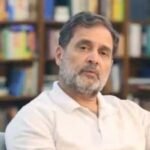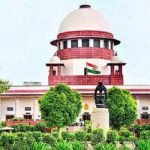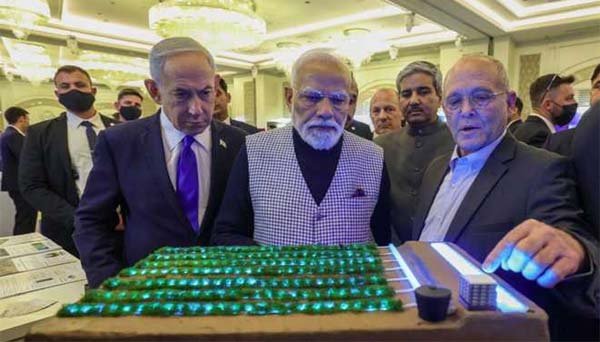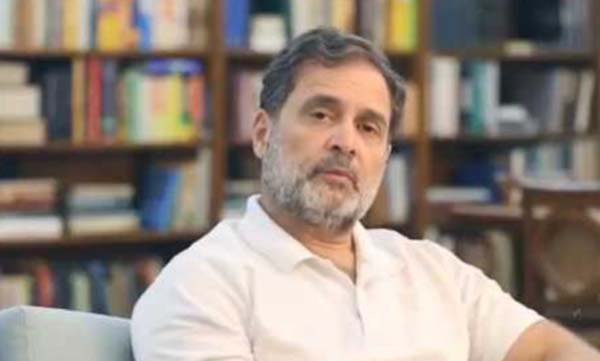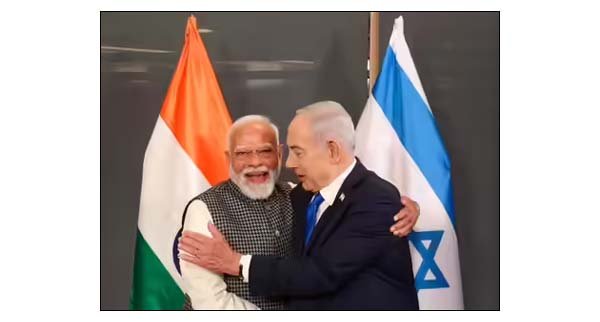New Delhi, Aug 25 (UNI) Home Minister Amit Shah today hit out at the opposition, accusing it of deliberately spreading misconceptions among the public regarding the Constitution (130th Amendment) Bill 2025.
He asserted that such attempts would not succeed, as the government’s connect and communication with the people is far stronger and more effective than that of the Opposition.
“The Opposition only wants to spread misconceptions about this bill, but they will not succeed, because our communication with the people is many times stronger than theirs,” Shah told a news outlet. The interview was later released by the Home Ministry.
Reiterating that any minister, Chief Minister or Prime Minister in the country cannot run government from jail, Shah said, “There is a provision in the Constitution (130th Amendment) Bill 2025 that if the Prime Minister, Chief Minister, Minister of the Government of India or Minister of the State Government is arrested under any serious charge and is not granted bail within 30 days, then they will be relieved from their post”. If this does not happen then they will be automatically relieved from their post, legally.
Responding to Opposition criticism, Shah said he himself had made it clear that this constitutional amendment will be referred to the Joint Parliamentary Committee of the two Houses.
“A two-third majority is required for the passage of this bill and when voting takes place, all parties can give their views on it,” Shah said.
He criticised the Opposition’s disruptive tactics in Parliament, stating, “Not allowing any bill or Constitution amendment bill of the government from being presented in the House is not an appropriate behavior exhibited by the Opposition in a democracy”.
He said both Houses of Parliament are for debate and discussion and not for noise and uproar. This mentality of not allowing the bill to be presented is not democratic, and the Opposition will have to explain their actions to the people of this country.
Shah also clarified that the provision of imprisonment was not made by the Modi Government, but has been going on for years. In the 130th Constitutional Amendment, serious crime has been defined as where there is a provision of punishment of more than five years, then the person will have to resign.
The Home Minister said that since Independence, it has been a common practice for leaders, ministers, and chief ministers to resign upon being sent to jail. However, a new trend has started where some individuals refuse to step down even after being imprisoned.
“Some ministers of Tamil Nadu, and Chief Minister and ministers of Delhi did not resign. Will the Secretary of the Government, DGP, Chief Secretary go to them in jail to get orders? Shah asked. There should be concern and discussion on this issue, he said.
The Home Minister said that since Independence, it has been a common practice for leaders, ministers, and chief ministers to resign upon being sent to jail. However, a new trend has started where some individuals refuse to step down even after being imprisoned.
“Some ministers of Tamil Nadu, and Chief Minister and ministers of Delhi did not resign. Will the Secretary of the Government, DGP, Chief Secretary go to them in jail to get orders? Shah said adding that there should be concern and discussion on this issue.
He also slammed the Opposition’s “vendetta” comments saying, “It does not suit the main opposition party to talk about vendetta. They used the CBI too, and many people were trapped after court-directed investigations”.
He also hit back at the Opposition’s moral remark, stating that he does not need lessons in ethics from those who refuse to step down even after being jailed. Citing his own experience, Shah said that when he was accused in a case and received a CBI summons, he resigned from his post the very next day.
“The Opposition should not teach me lessons on morality,” Shah said, recalling that despite the political pressure he faced, he chose to step aside until his name was cleared. He highlighted that the court not only acquitted him but also observed in its judgment that the case was one of “pure political vendetta” and that he had absolutely no involvement.
He also made it clear that all the parties of NDA were completely in agreement with this law.


